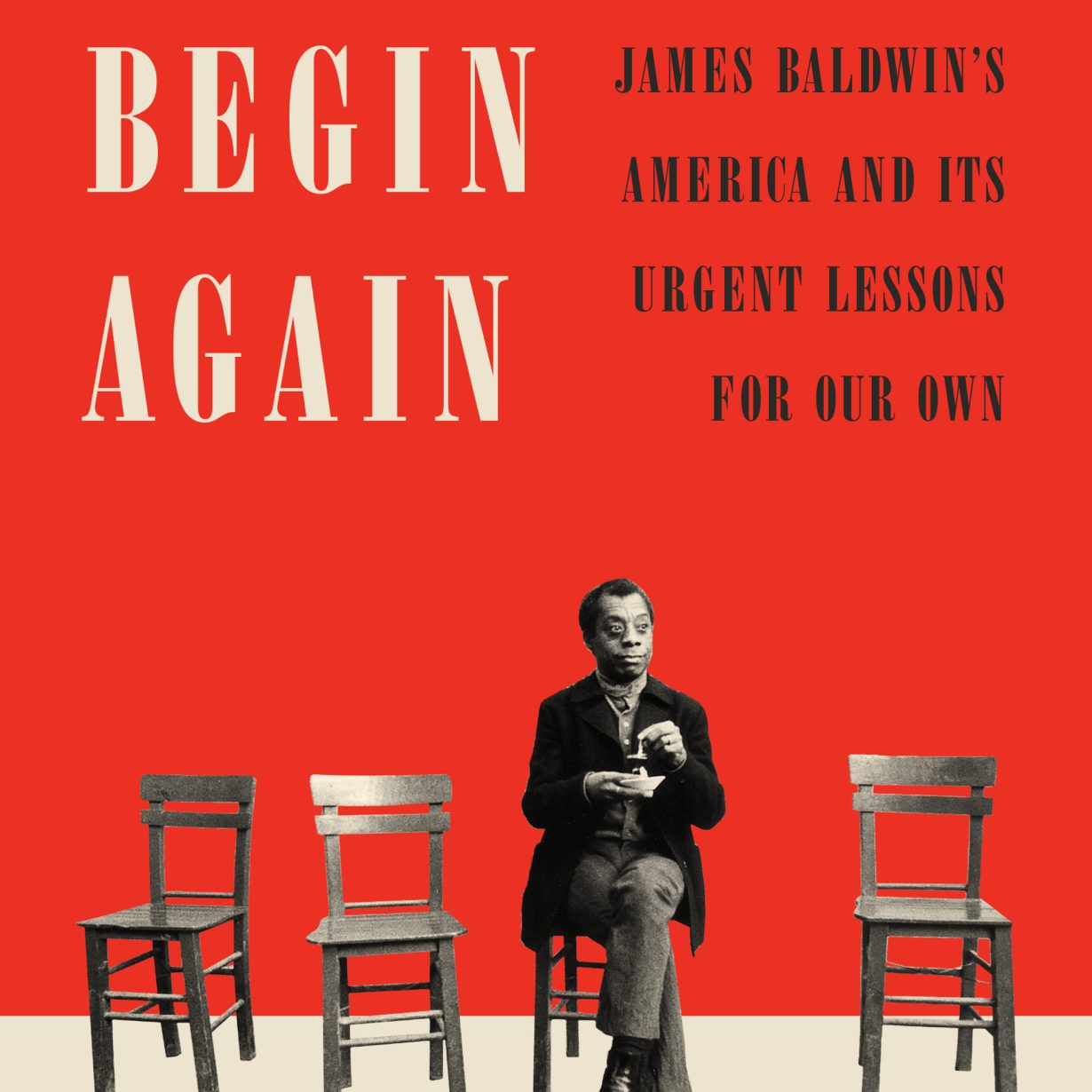Eddie S. Glaude Jr’s Begin Again – overlayering periods in American history in order to highlight the cyclical nature of its racial conflicts – is a powerful, genre-defying work

Begin Again represents a search for hope written from inside the despair felt by its author, a professor of American studies at Princeton, at what turned out to be the midway point of the Trump presidency. The resulting book was published in the US two years later, just as George Floyd’s death beneath the knee of a Minneapolis policeman ignited national and international protests, fuelled the Black Lives Matter movement and brought the American president’s white supremacist beliefs, policies and – implicitly or explicitly – voters into their sharpest focus yet, all this heading into the cauldron of the 2020 presidential election season. Published in the UK in 2021, with an introduction written on the eve of the US election, without foreknowledge, but surely a feeling in the bones, of Trump’s subsequent attempts to overturn the results of that election by discarding ballots cast by Black voters in Atlanta, Philadelphia and Detroit, and by summoning a militia of white men (and a few women) bearing symbols of the Confederacy and shouting the ugliest of racist language as they stormed the Capitol nine weeks later, Begin Again affords the reader the opportunity to experience its resonances in several temporal dimensions at once.
Overlayering periods in American history in order to highlight the cyclical nature of its racial conflicts and to glean insight from earlier Black artists, intellectuals and leaders into managing the despair engendered by the most recent conflagration is what structures Eddie Glaude’s powerful, genre-defying work. Nominally a study of James Baldwin, and specifically the period between the publication of Baldwin’s nonfiction essay collections The Fire Next Time (1963) and No Name in the Street (1972), Begin Again (which takes its title from a line in Baldwin’s final novel, Just Above My Head, 1979) builds towards the conclusion that the US is facing its third moral reckoning, as consequential as its two previous reckonings, the Civil War/Reconstruction of the 1860s–70s and the Black freedom struggle of the mid-twentieth century. Using the phrase ‘the after times’ to describe periods during which ‘the lie’ – the ‘broad and powerful architecture of false assumptions’ required to disregard overwhelming evidence that American white lives matter more than all others – is once again embraced, inevitably in reaction to political change benefiting Black lives, Glaude picks out the parallels between the rise of Reaganism in the wake of the civil-rights movement and Johnson’s Great Society legislation, and Trumpism following ‘the illusion of safety’ of the Obama administration, to classify the present as another moment of almost unimaginably profound disillusionment for Black Americans.
Drawing on W. E. B. Dubois, Martin Luther King, Eldridge Cleaver and many, many other figures to identify degrees of hope and despair, and possible paths through both, Glaude pinpoints Baldwin – frequently referred to here, with tenderness and intimacy, as Jimmy – as an exemplar, if not an avatar, and one in need of being understood more fully. Redeeming Baldwin from a narrative that says he gave up art for politics, which is perhaps another way of saying that he succumbed to rage and despair, and became a lesser figure for it (Baldwin died in 1987, by which time he had witnessed the full betrayal of the civil rights movement under the Reagan administration), Glaude, through
a blend of memoir, biography, history, literary criticism and incantatory repetition of themes, identifies the writer’s ideological shifts, the nonlinear, folding-back-on-itself recursiveness of his texts, speeches and film and TV appearances, his insistence on radical honesty, particularly towards one’s own deepest flaws, the huge strength required just to keep going – and the model his life offers to those still in the struggle.
The third reckoning of the present moment, Glaude concludes, offers, once more, the possibility for what Baldwin called a New Jerusalem, a third founding of the country, a chance to begin again that, in Glaude’s persuasive scholarship, Baldwin never entirely abandoned – though, invoking Dubois, this possibility is ‘[a] hope not hopeless but unhopeful’. Trump’s defeat at the polls would be (and presumably is) cold comfort, he continues, particularly where accompanied by the perception that Trump was an aberration. He is us, writes Glaude, he is who we are, and to say otherwise, to breathe a sigh of relief that he is gone, to define him as other in order to protect our image of ourselves, will get us nowhere.
Eddie S. Glaude Jr, Begin Again: James Baldwin’s America and Its Urgent Lessons for Today, Chatto & Windus, £16.99 (hardcover)